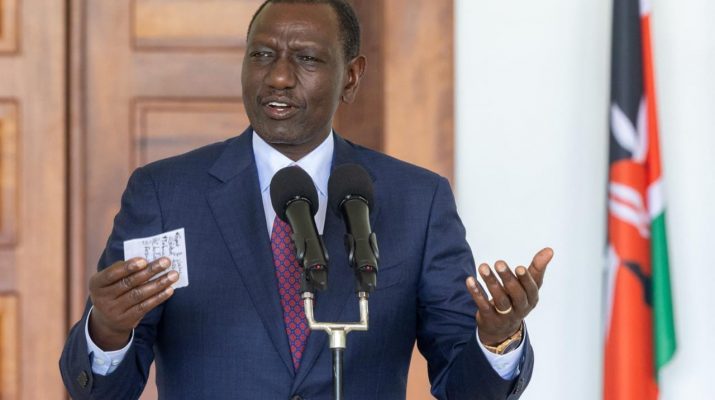Tajeu Shadrack Nkapapa
President William Ruto, one of the five African leaders invited to the G7 Summit in Italy, has arrived in Brindisi, Puglia, southern Italy.
He is expected to deliver a speech at the summit later today.
The G7, comprising of Canada, France, Germany, Italy, Japan, the United Kingdom, the United States and the European Union, will address critical global issues on international cooperation.
Among other African heads of State attending the summit are the Presidents of Algeria, Egypt and Tunisia.
Also attending the summit are President Joe Biden of the United States, Mohammed bin Zayed of the UAE, Recep Tayyip Erdoğan of Turkey, Kaïs Saïed of Tunisia who also serves as the African Union Chair, and Mohamed Ould Ghazouani of Mauritania, who holds the African Union chairmanship.
Additional participants include Presidents Luis Inácio Lula da Silva of Brazil, Javier Milei of Argentina, Abdelmadjid Tebboune of Algeria, King Abdullah II of Jordan, and Indian Prime Minister Narendra Modi.
Also present at the summit are United Nations Secretary-General Antonio Guterres, President of the African Development Bank Akinwumi Adesina, President of the World Bank Ajay Banga, Managing Director of the International Monetary Fund Kristalina Georgieva, and Secretary-General of the OECD Mathias Cormann.
The G7 countries share common values, and principles such as political pluralism, liberal democracy and representative government.
At the G7 Summit, President Ruto will emphasize the importance of involving African countries in finding solutions to global challenges such as climate change, peace and security, including war and other conflicts.
He will also highlight Africa’s potential for green industrialization, digital revolution and innovation and cite the huge renewable energy reserves in the continent.
These renewable energy resources can help many developed countries achieve their Netzero targets by 2050.
Additionally, the President will detail African Union reforms aimed at bolstering trade, development, peace, stability, and increased global engagement.
He has consistently advocated for restructuring the international financial system, including multilateral development banks, to promote inclusivity and fair representation.
He has stressed the need to democratize the boards of multilateral development banks, ensuring that all members have an equal say in their management.
“The current international financial architecture is faulty and unfair, and must be fixed because it neglects the interests of developing countries,” the President pointed out.

